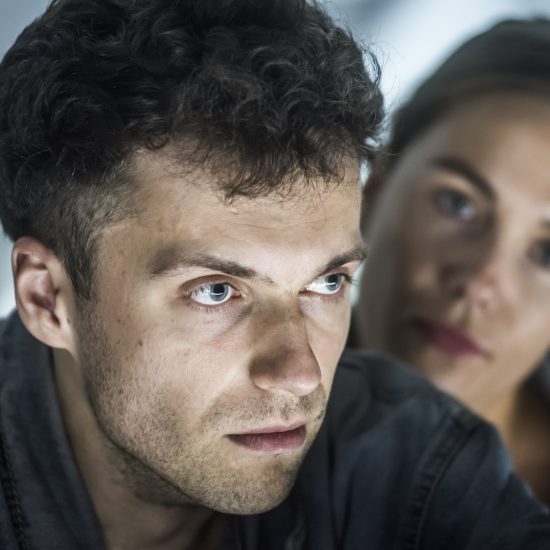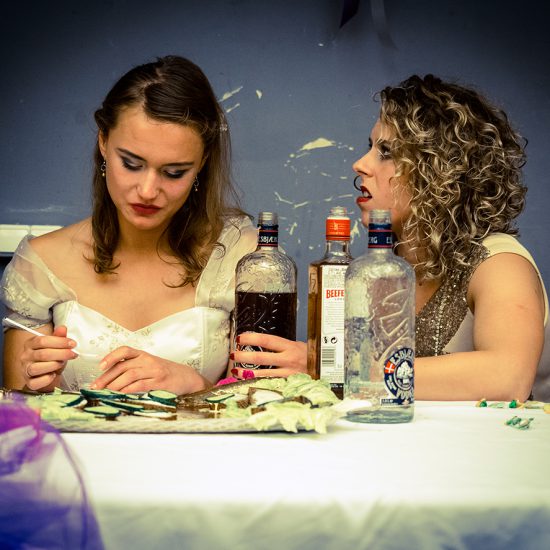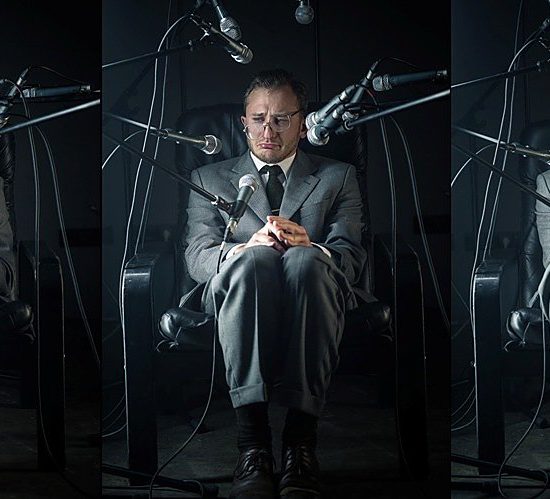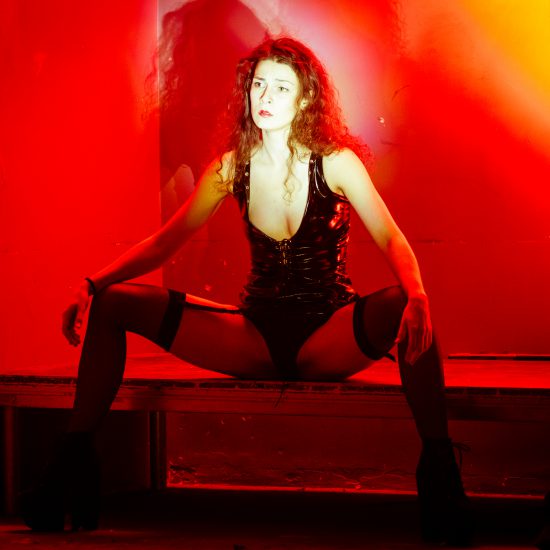Lithuanian Theatre Spreads its Wings for Flight in International Theatre Festival “Sirenos”
[…] The mystical limit between reality and fiction is constantly erased. Vibrant energy tears of the masks; the lines of the text become voices and screams, revealing lonely efforts of survival. Seated around a long table loaded with vodka bottles, Gorky’s low-lifes drink while talking about themselves – their long forgotten past, their dreams and philosophies. At the same time they are participating, each in their own way, in a fierce struggle between mutual distrust and overly festive drinking. The “Sirens” of Vilnius used to go down to the audience. But the long and narrow space of the OKT Studio’s stage has allowed to eliminate any distance, and in “The Lower Depths” the audience becomes involved in this bizarre feast, led by Satin, where at first sigh incoherent speeches are illuminated by flashes of questions about man and his truth. This is what the dramaturgical fabric of the performance is made of – it separates the fourth act from the rest of the play, deletes the entire preceding story full of passion associated with Vasilisa’s brutal jealousy, and “sews” the thread that only belongs to the characters on the stage. The Baron, Nastya, who fiercely defends her romantic fantasies of love, and Actor, who by killing himself stops the chatter and drops the final curtain on Gorky’s text, gain importance along with Satin. But that is not the end of the play. Here the epilogue begins, in which Hamlet’s words about being and not being, about the divine and bestial nature of man, about the pointlessness of war, and about the actor disheartened by Hecuba’s pain are reiterated. And what is Hecuba to him, or he to Hecuba?
This time, the surreal process of identification involves “his own” Prospero, who, being physically confined to his room, flies out on the wings of Shakespeare’s imagination. He is not a dethroned king exiled to a remote island, but one of those intellectuals, who are still able to release their imagination and keep their spiritual freedom despite being rendered helpless and imprisoned in the libraries of their homes. Miranda is the daughter of this Prospero, but not only. The new staging turns her into an extremely difficult character, symbolic and realistic at the same time. She is a disabled girl – this is what we see in the beginning. Curled up in her armchair, she spits out her soup, because she wants to be fed dreams. She wants her father to read to her and let her live out the happy fairytale of Miranda. But when this book-filled library is transformed into a magical theater where the father plays all the characters, that’s when she turns into Shakespeare’s Miranda, who is suffering because of her shipwrecked destiny and falls in love with Ferdinand, but also becomes Ariel, and finally spreads her wings for flight, because, as Koršunovas wants to tell us, she is, after all, Prospero’s free spirit.
Laura Caretti, Hystrio, 2013 nr. 1



